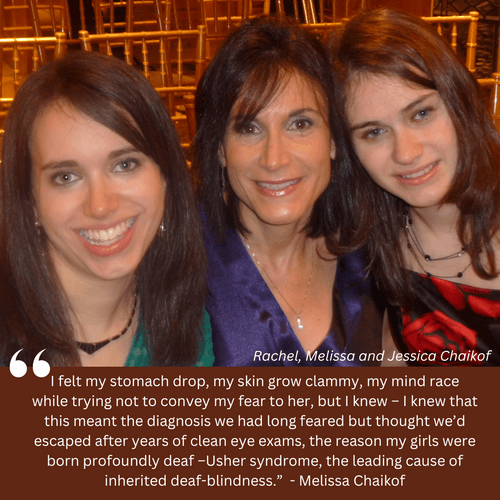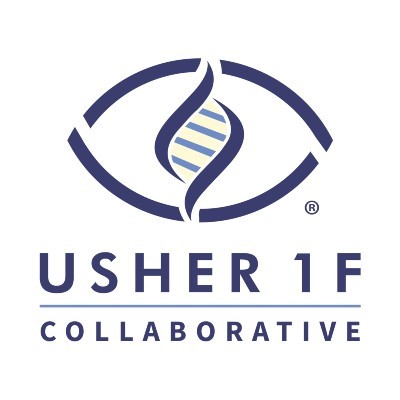
Diagnosis
The diagnosis of Usher 1F is a cruel double-whammy. Almost always, parents immediately learn of their child’s deafness at birth, through newborn screening. With cochlear implants - and years of auditory/verbal therapy - young children and their parents adjust to a life with aided hearing. The hill is climbed; the battle is won. It is often not until later that Usher 1F patients learn that they will also lose their vision.
Usher 1F Collaborative co-founder Melissa Chaikof writes, “By 2006, with my older daughter finished high school and entering college, I felt that I had earned the right to sit back and relax a bit, that I had climbed that hill and could now sit back and enjoy the view, but that view turned out to be a mountain.” Her daughters were diagnosed with Usher 1F two months after the graduation.
Rachel Root says, “Zachary had the surgery to put in the cochlear implants and then we came home and we had a new life with the implants. And slowly but surely we were witnessing a miracle, every single day. But it still always concerned me that maybe it was something more and I just couldn't let it go.” It wasn’t until after genetic testing that the Roots learned of Zachary’s Usher 1F diagnosis.
Without any sort of patient organization advocating for Usher 1F patients, families felt lost and hopeless. This is what sparked the need for Usher 1F Collaborative. Stay tuned for the next part of our series, Founding of Usher 1F Collaborative.
